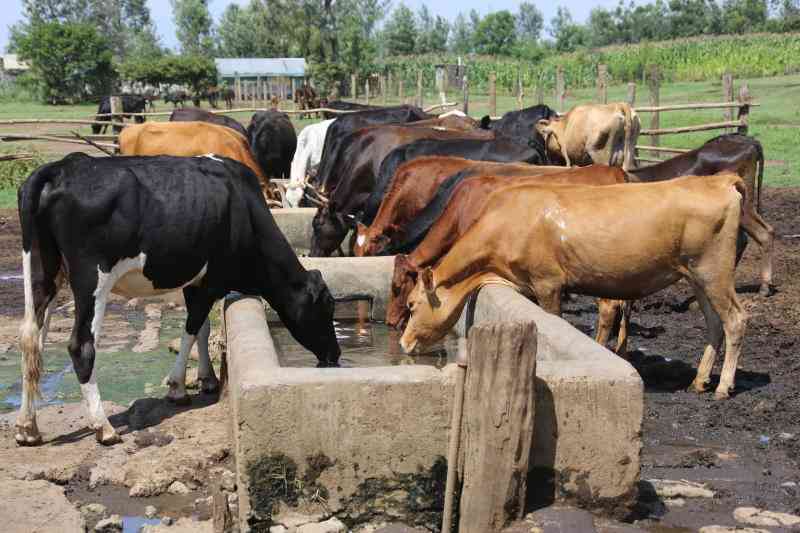
A herd of cows drinking water at Lengenet village, Rongai sub-county. [Kipsang Joseph, Standard]
Thanks for the educative articles on various livestock health issues. I keep some dairy animals. I recently lost my calf to a strange condition I had never heard of. This pushed me to seek the services of a veterinary doctor who after doing the postmortem found that my calf had died of water intoxication. I have learned the hard way a reason I am sharing my experience so that other farmers can benefit from this experience. I have read a round and am now better prepared to prevent water intoxication in my future calves. - Akudabweni Samuel, Kakamega